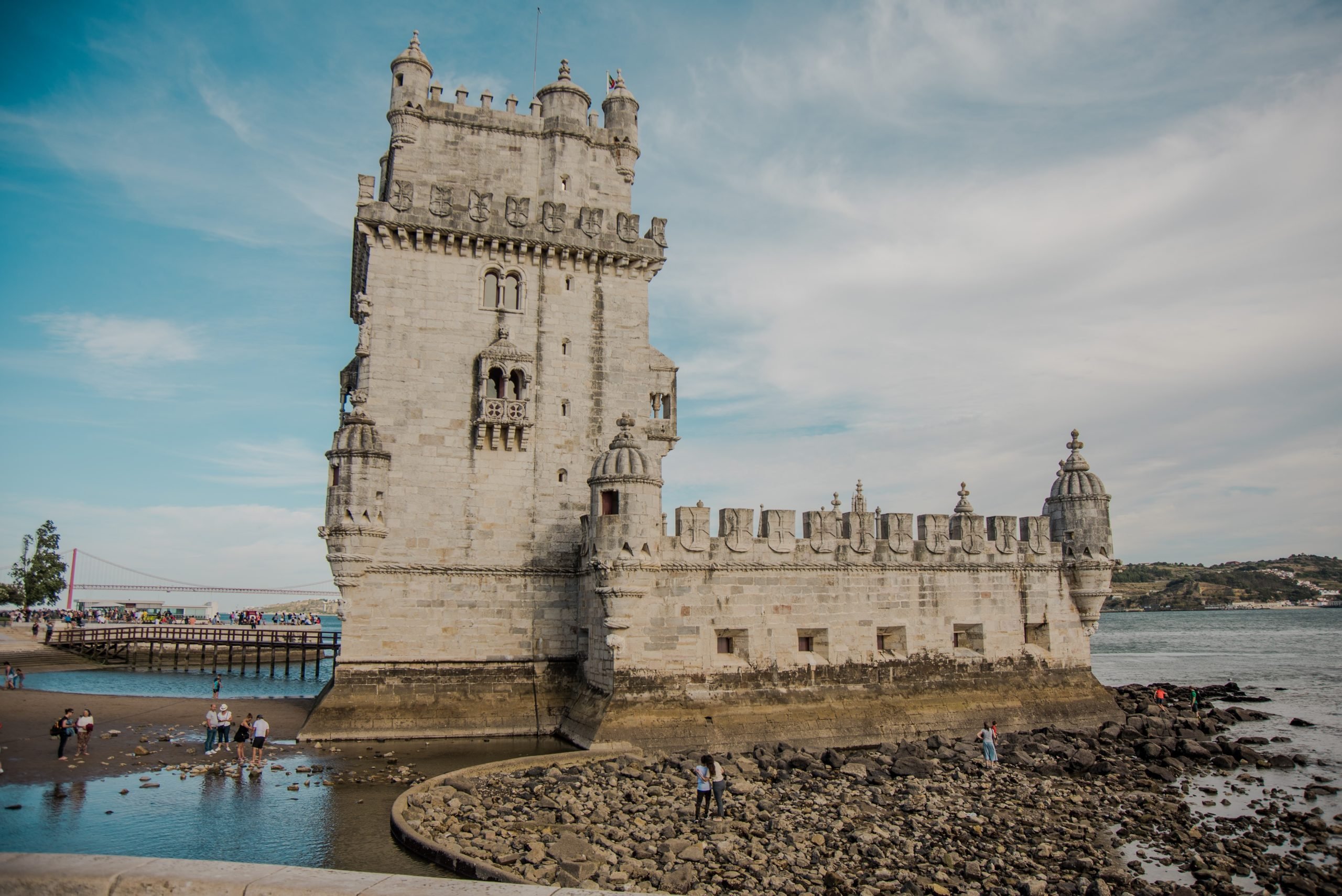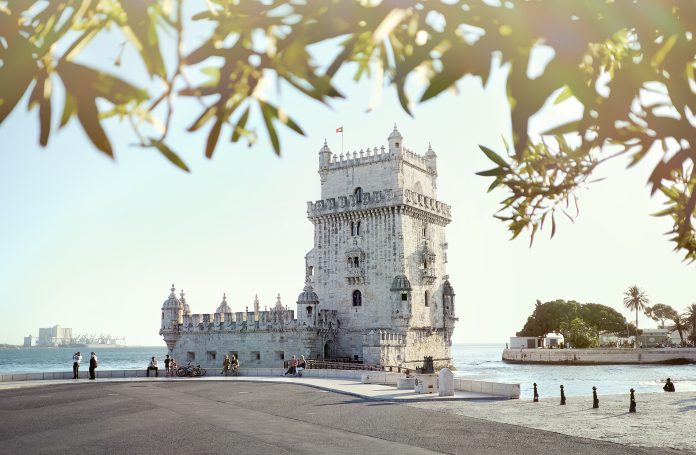Built in the 16th century in Lisbon along the Tagus River, the Belém Tower served as a point of embarkation for Portuguese discoveries, making it a key building in the history of Portugal. Along with the Jerónimos Monastery, the Belém Tower was made a UNESCO World Heritage Site in 1983 and is a symbol of Europe’s Age of Discoveries.
Let’s take a look at a quick overview of the Belém Tower, also known as the Tower of Saint Vincent, including its history, architecture, visiting information, and related tours for a full experience.
History
In the late 1400s, King John II had designed a defense system that depended on the fortress of Cascais and Torre Velha in Costa da Caparica. However, these did not completely protect the river’s mouth.
Therefore, the Belém Tower was built between 1514 and 1520 during the reign of King Manuel I in order to improve the defense system that protected the port of Lisbon. The tower was strategically placed at the mouth of the Tagus River, allowing it to control the entrance to the harbor and prevent enemy ships from entering.
Over the years, Belém Tower has played an essential role in Portugal’s maritime history, serving as a customs checkpoint for incoming ships and a departure point for explorers and navigators heading out to sea. It is, therefore, a symbol of Portugal’s Age of Discovery.
Over the centuries, the Belém Tower has witnessed many significant historical events. It served as a lighthouse, a customs house, and even a political prison during the Spanish occupation of Portugal.
In the 19th century, the tower underwent significant restoration work and was declared a national monument.
Architecture
The Belém Tower was designed by Francisco de Arruda, a Portuguese architect who was heavily influenced by the ornate Manueline style of architecture. This Portuguese style incorporates intricate and decorative elements, such as maritime motifs, rope knots, and exotic animals.
However, the tower does not solely represent the Manueline style but combines Gothic, Moorish, and Renaissance architecture.
The tower is a fortified structure with four levels, including a watchtower and a terrace with battlements. The tower’s exterior is adorned with maritime motifs, such as carved stone ropes, anchors, and sea monsters.
The tower’s façade also features an ornate Portuguese shield depicting the Cross of the Order of Christ, which was the emblem of the Portuguese explorers during the Age of Discovery.

Visiting Times & Tickets
The Belém Tower is open from 9:30 am to 6 pm. The last ticket sales time is at 5 pm. The monastery is closed for visitors on Monday and January 1st, Easter Sunday, May 1st, June 13th, and December 25th.
A standard ticket costs 6 euros. However, there are a few discounts available:
- Visitors aged 65 or older – 50%
- Student’s card – 50%
- Youth Card – 50%
- Family ticket (1/2 adults +2 children under 18) – 50%
If you are a resident of Portugal, you can enjoy free entrance into all National Museums and Monuments on Sundays and holidays until 2 pm, which includes Belém Tower.
Related Tours
Belém and Jerónimos Monastery Guided Small Group Walking Tour
Lisbon All-in-One Hop-On Hop-Off Bus and Tram Tour with River Cruise


